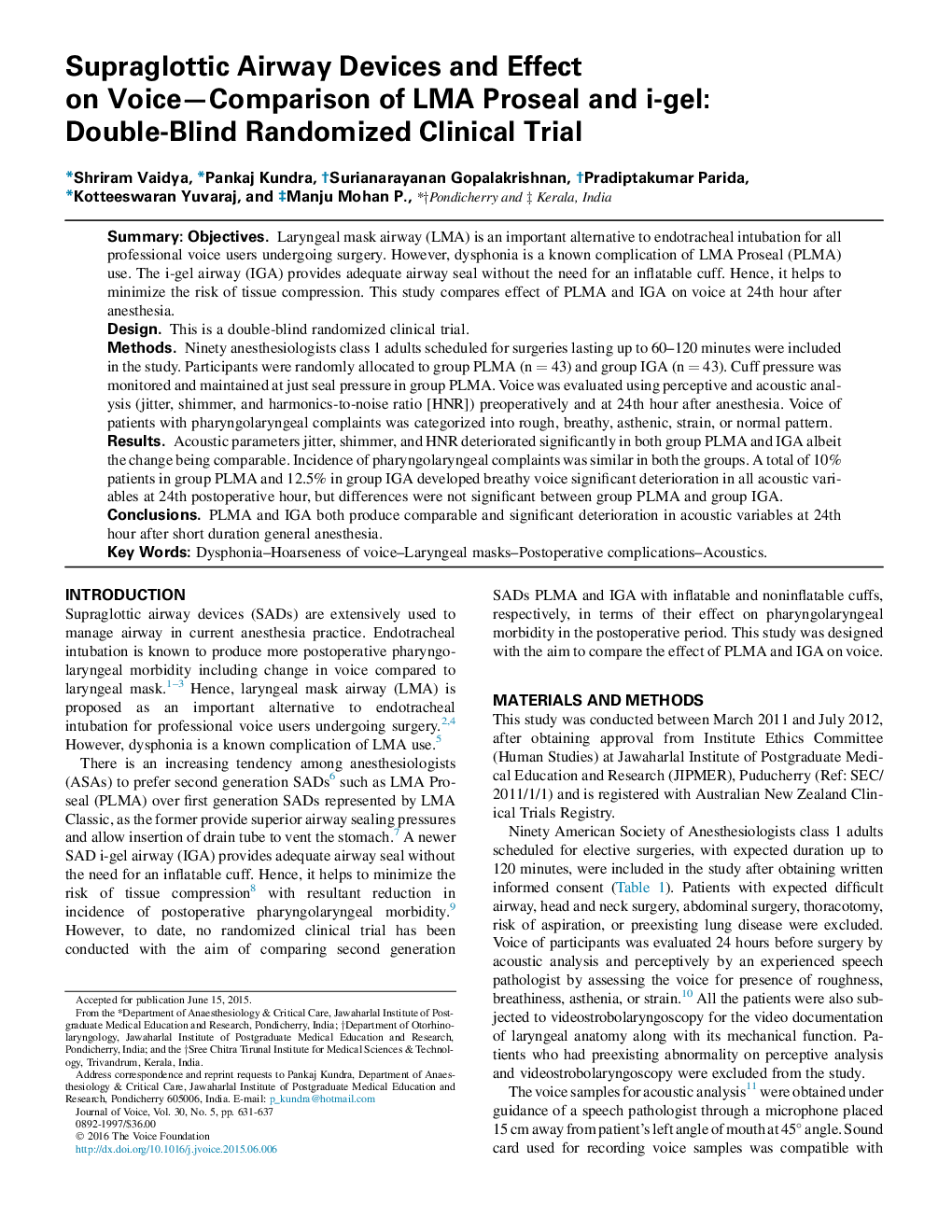| Article ID | Journal | Published Year | Pages | File Type |
|---|---|---|---|---|
| 5124491 | Journal of Voice | 2016 | 7 Pages |
SummaryObjectivesLaryngeal mask airway (LMA) is an important alternative to endotracheal intubation for all professional voice users undergoing surgery. However, dysphonia is a known complication of LMA Proseal (PLMA) use. The i-gel airway (IGA) provides adequate airway seal without the need for an inflatable cuff. Hence, it helps to minimize the risk of tissue compression. This study compares effect of PLMA and IGA on voice at 24th hour after anesthesia.DesignThis is a double-blind randomized clinical trial.MethodsNinety anesthesiologists class 1 adults scheduled for surgeries lasting up to 60-120 minutes were included in the study. Participants were randomly allocated to group PLMA (n = 43) and group IGA (n = 43). Cuff pressure was monitored and maintained at just seal pressure in group PLMA. Voice was evaluated using perceptive and acoustic analysis (jitter, shimmer, and harmonics-to-noise ratio [HNR]) preoperatively and at 24th hour after anesthesia. Voice of patients with pharyngolaryngeal complaints was categorized into rough, breathy, asthenic, strain, or normal pattern.ResultsAcoustic parameters jitter, shimmer, and HNR deteriorated significantly in both group PLMA and IGA albeit the change being comparable. Incidence of pharyngolaryngeal complaints was similar in both the groups. A total of 10% patients in group PLMA and 12.5% in group IGA developed breathy voice significant deterioration in all acoustic variables at 24th postoperative hour, but differences were not significant between group PLMA and group IGA.ConclusionsPLMA and IGA both produce comparable and significant deterioration in acoustic variables at 24th hour after short duration general anesthesia.
